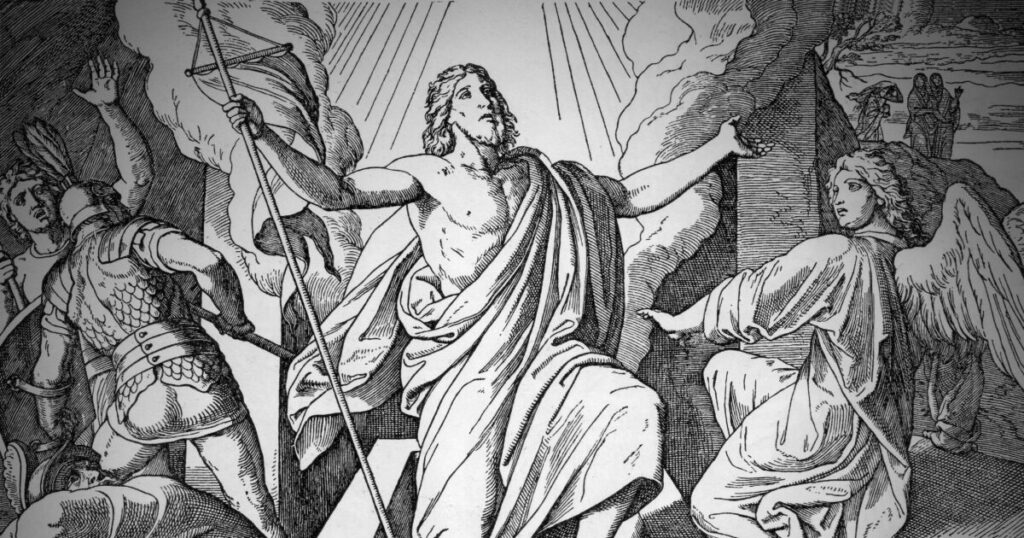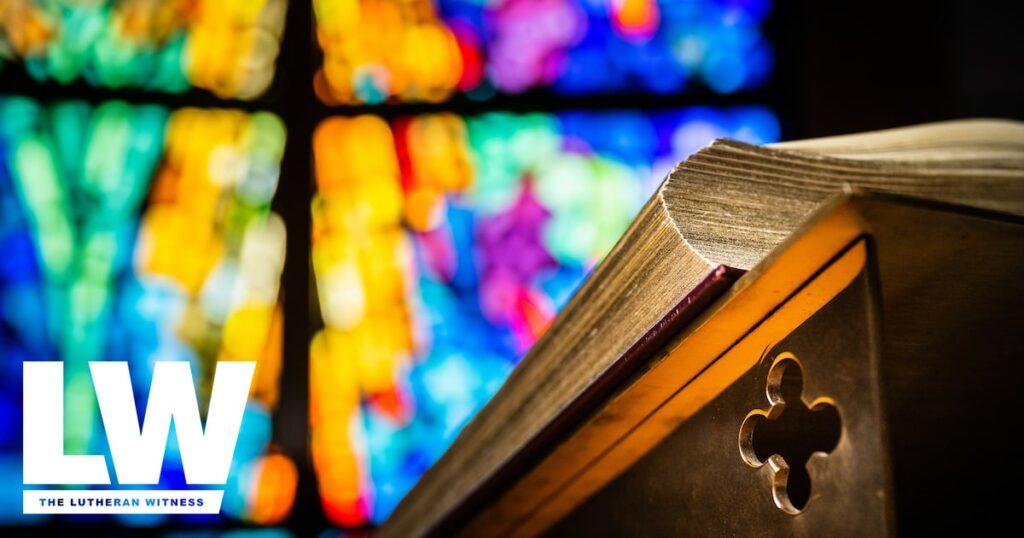by Matthew C. Harrison
The word “witness” in the New Testament is extremely important. After the ascension of Jesus, Peter gathered the apostles (and the broader number of some 120 disciples) and informed the group that Judas, having betrayed Christ and committed suicide, must be replaced. His “office” had to be filled. Peter said, “So one of the men who have accompanied us during all the time that the Lord Jesus went in and out among us, beginning from the baptism of John until the day when he was taken up from us — one of these men must become with us a witness to his resurrection” (Acts 1:21–22).
Jesus had told His disciples, “And you also will bear witness, because you have been with me from the beginning” (John 15:27). The apostles were sent by Christ to bear witness to the world (Matt. 28:19; Acts 1:8). They bore witness in a legal sense, telling others what they had actually seen and heard of Jesus (1 John 1). Some of them bore witness by writing Gospels (Matthew and John) or writing down the witness of an apostle (Mark for Peter; Luke for Paul).
This witness of the apostles has always been tremendously comforting for me when I encountered the views of numerous liberal theologians from the past two centuries. These radicals denied that Jesus said almost everything attributed to Him in the New Testament, denied Jesus’ miracles and even the resurrection itself. In contrast to these scholars’ canards, I considered the witness of Jesus’ closest followers.
First, liberal scholars like to highlight that some early Jewish accounts claim that Jesus’ disciples stole His body and claimed a resurrection. Liberal theologians also claimed that the church composed the Gospels as a grand fictional story embellished over time. These scholars taught that the Gospels had not even been written until well into the second century, long after the events they described. And yet, archaeological discoveries have pushed the likely dating of the Gospels much earlier than previously thought — that is, right back into the first century. And, most significantly, no one from within the community of Jesus’ disciples ever came forward and contested the facts claimed by the Gospels.
Second, as a young pastor I became convinced that these liberal scholars must not have had much pastoral experience. I recall ministering to a woman who was nearly a century old. The congregation had been founded in 1885. This woman vividly recalled the founding pastor. In fact, she told me about a quip the pastor once made while visiting her parents’ home. A container of beans was spilled, and some fell on the floor. The pastor quipped, “Jede Bohne kostet Geld!” “Every bean costs money!” If I were to speak falsely about this pastor, she would have contradicted me with a clear memory, nearly a century old.
Another illustration: My father-in-law is 96 years old. His mind is still very sharp. Just this year, he has very clear memories of events prior to 1930, including his congregation, Morningside Lutheran Church in Sioux City, Iowa. That’s a 90-year span. Jesus’ resurrection occurred in A.D. 33. The writings of the New Testament were circulated throughout the church before A.D. 70. At that time, there were still plenty of people alive who had seen and heard Jesus, and many more who had close relatives and friends who had witnessed Jesus’ resurrection. None of them ever came forward and claimed the Gospels were fiction.
The resurrection of Jesus is the foundation of our faith. It proves that Jesus is the Son of God. It proves that His message is true. Jesus “was delivered up for our trespasses and raised for our justification,” as St. Paul put it (Rom. 4:25). I believe it because I recognize that I am a sinner, and I hear in the Gospels and the rest of the Bible the voice of my Savior. I take great comfort in realizing that His witnesses did exactly as He wished: “This is the disciple who is bearing witness about these things, and who has written these things, and we know that his testimony is true” (John 21:24).
–Pastor Harrison





